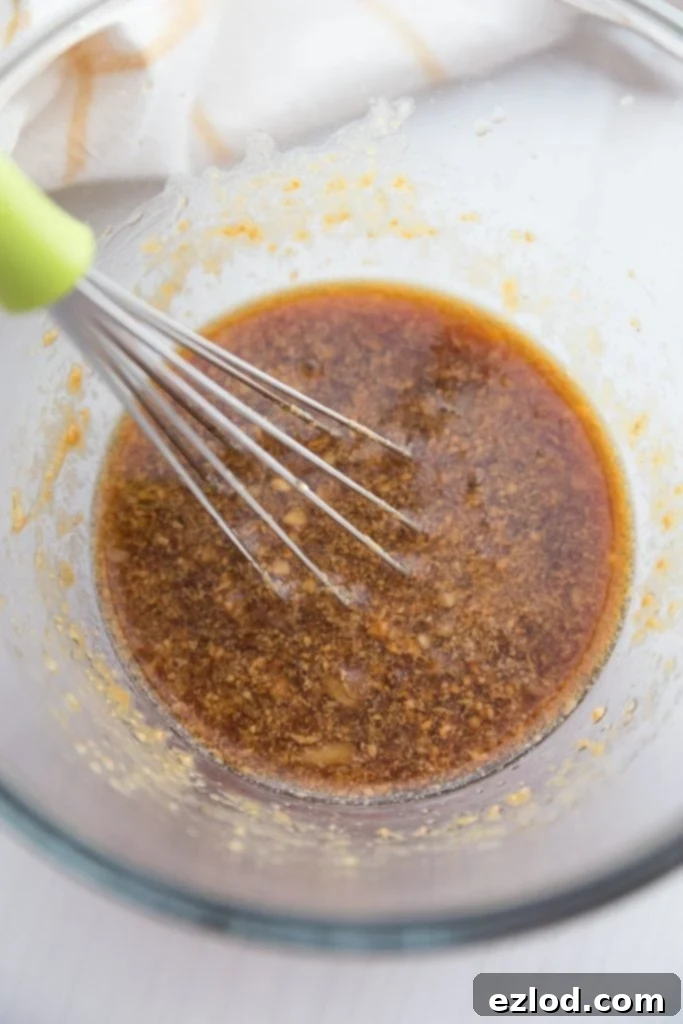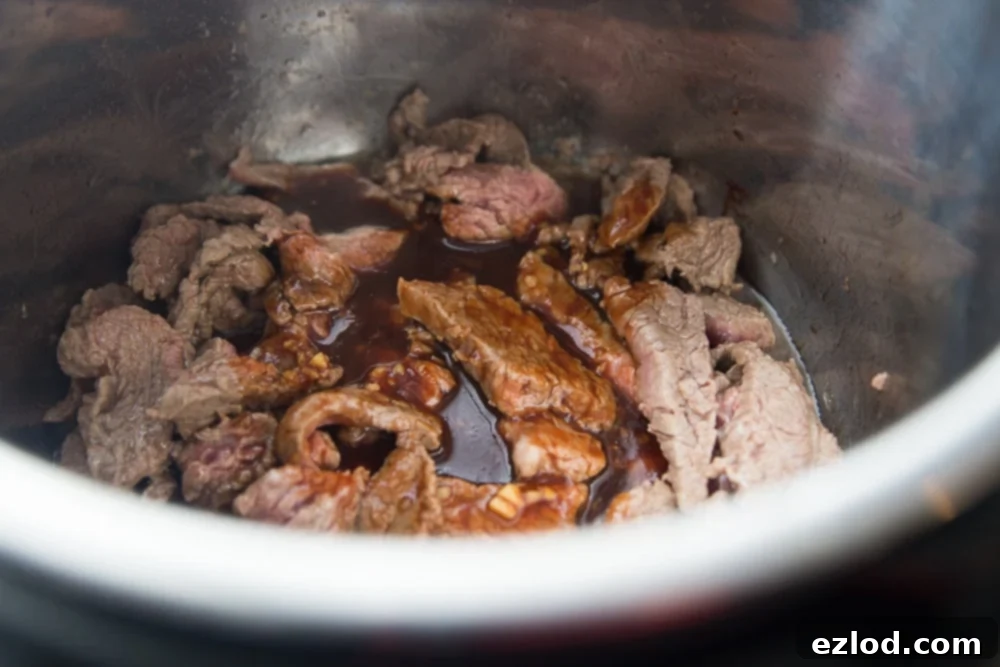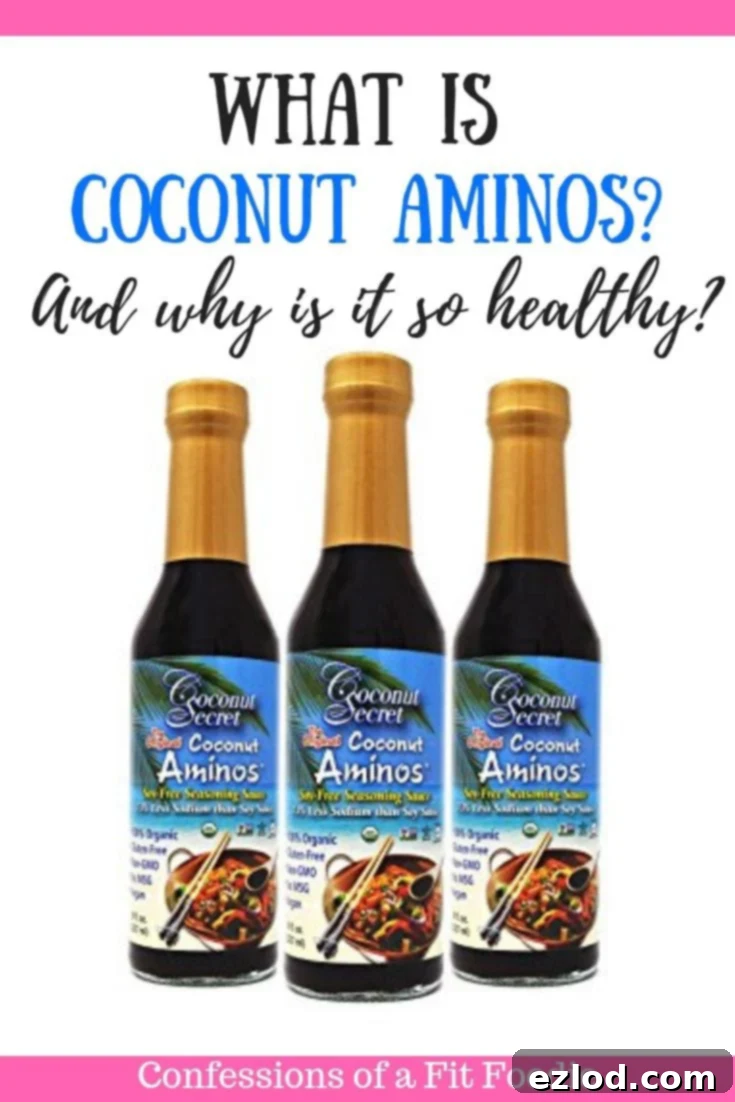Coconut Aminos: The Complete Guide to Your Healthy, Gluten-Free Soy Sauce Alternative
Ever wondered what Coconut Aminos is and why it’s becoming the preferred alternative to traditional soy sauce for health-conscious individuals? You’re in the right place! Read on to discover everything you need to know about this fantastic condiment, from its origins and health benefits to delicious recipe ideas. This post contains affiliate links for products I’m obsessed with, meaning I may earn a small commission if you make a purchase through them, at no extra cost to you.
As the world becomes more aware of dietary restrictions and the importance of nutrient-dense foods, many are searching for healthier swaps in their pantry. One such swap that has gained immense popularity is Coconut Aminos, a fantastic condiment that serves as a delicious and health-conscious alternative to traditional soy sauce. If you’re a regular reader of my blog, you’ll know I frequently use it in my Asian-inspired recipes, and for good reason! It’s not just a gluten-free and soy-free option; it also boasts an impressive array of health benefits.
What is Coconut Aminos? Unpacking This Healthy Condiment
At its core, Coconut Aminos is a savory, dark, and slightly sweet seasoning sauce made from the sap of the coconut blossom. It’s an incredibly versatile ingredient that has a remarkably similar flavor profile to soy sauce, making it an excellent substitute for those avoiding soy or gluten, or simply looking for a healthier alternative. However, its benefits extend far beyond just being a dietary substitute, offering a wealth of nutritional advantages that set it apart.
The Simple Ingredients Behind Coconut Aminos
One of the most appealing aspects of Coconut Aminos is its remarkably simple and natural ingredient list. Unlike many heavily processed condiments, Coconut Aminos is typically made with just two core ingredients:
- Coconut Blossom Nectar (Sap): This is the primary ingredient, collected from the blossoms of the coconut palm tree. It’s a nutrient-rich sap, not to be confused with coconut milk or oil.
- Sea Salt: After the coconut nectar is collected, it undergoes a natural fermentation process. Following fermentation, it is blended with sea salt to develop its signature umami flavor and to act as a natural preservative.
This minimalist approach to ingredients means you’re consuming a product that is closer to its natural state, free from artificial additives, preservatives, or genetically modified organisms (GMOs).
What Does Coconut Aminos Taste Like?
Despite its name, Organic Coconut Aminos does not taste like coconut at all. This is a common misconception! Instead, it offers a sophisticated taste profile that closely mimics traditional soy sauce, with a delightful twist. It delivers that coveted salty, savory umami flavor that we all love in Asian cuisine, but with a noticeable difference: it’s subtly sweeter and significantly less salty than soy sauce.
The milder saltiness prevents it from overpowering other flavors in your dishes, allowing for a more balanced taste. Many people, including myself, find that once they make the switch, they actually prefer its nuanced, savory flavor. Even discerning palates often can’t tell the difference when used in cooked dishes, solidifying its status as a popular and effective soy sauce substitute for various culinary applications, from marinades to dipping sauces.
Soy Sauce vs. Coconut Aminos: A Detailed Comparison for Healthier Choices
While soy sauce has been a staple in Asian cuisine worldwide for centuries, it comes with several considerations that make Coconut Aminos a superior choice for many. The primary concerns with traditional soy sauce often revolve around its high sodium content, the presence of GMO soy, and gluten.
Sodium Content: A Key Differentiator
One of the most significant advantages of Coconut Aminos is its drastically lower sodium content. This is particularly crucial for individuals managing blood pressure, those on low-sodium diets, or programs like the 21 Day Fix that emphasize healthier eating habits. Even “low sodium” soy sauce can still contain a substantial amount of sodium, often far exceeding what’s considered healthy for a single serving.
Let’s look at the numbers: A typical bottle of Coconut Aminos contains approximately 90mg of sodium per tablespoon, which translates to about 4% of the daily recommended value. In stark contrast, my Organic Low Sodium Soy Sauce has a staggering 680mg of sodium per tablespoon, accounting for 28% of the daily value. This represents a monumental difference – Coconut Aminos has roughly one-seventh the sodium of even low-sodium soy sauce! This reduction in sodium alone makes Coconut Aminos a healthier and more responsible choice for daily use, especially when cooking for family.
Gluten, Soy, and GMO Concerns
Beyond sodium, traditional soy sauce is typically made from fermented soybeans and wheat. This means it contains both gluten and soy, two common allergens and ingredients many people choose to avoid.
- Gluten: For individuals with celiac disease, gluten sensitivity, or those following a gluten-free lifestyle, traditional soy sauce is off-limits. Coconut Aminos is naturally gluten-free.
- Soy: Soy allergies are increasingly common. Furthermore, much of the soy grown globally is genetically modified (GMO), which some people prefer to avoid for various health and environmental reasons. Coconut Aminos offers a completely soy-free alternative.
Making a simple swap from soy sauce to an equal amount of Coconut Aminos in your recipes allows you to enjoy your favorite Asian-inspired dishes without these concerns, embracing a healthier and more inclusive approach to cooking.

Why Is Coconut Aminos So Good For You? Discovering Its Health Benefits
The allure of Coconut Aminos goes far beyond just being a low-sodium, gluten-free, and soy-free alternative. It’s a condiment packed with genuinely beneficial nutrients, making it a fantastic addition to almost any diet. Unlike heavily processed soy sauce, Coconut Aminos maintains many of the natural health properties found in whole coconuts.
A Rich Source of Essential Amino Acids
Perhaps the most remarkable nutritional advantage of Coconut Aminos is its impressive amino acid profile. It naturally contains 17 of the 20 key amino acids that our bodies need to function optimally. While the human body can naturally produce 10 of these, the remaining 10 are considered “essential amino acids” because we must obtain them through our diet. Coconut Aminos helps bridge this gap, providing many of these vital building blocks.
These amino acids play critical roles in various bodily functions:
- Muscle Repair and Growth: Essential for athletes and anyone looking to maintain muscle mass.
- Brain and Nervous System Coordination: Amino acids are neurotransmitter precursors, supporting cognitive function and nerve health.
- Immunity: They are crucial for building antibodies and supporting a robust immune system.
- High Energy Levels: Contribute to metabolic processes that provide sustained energy throughout the day.
Finding a delicious condiment that actively contributes to these fundamental health aspects is truly exciting, especially for those with specific dietary needs like low-sodium diets or food allergies and sensitivities.
Vitamins and Antioxidants for Overall Wellness
Coconut Aminos is also a great natural source of Vitamin B and Vitamin C. Vitamin B vitamins are essential for energy metabolism, nerve function, and red blood cell formation, while Vitamin C is a powerful antioxidant known for its immune-boosting properties.
Additional Health Benefits
Incorporating Coconut Aminos into your diet can also contribute to several other significant health advantages:
- Helps Regulate Cholesterol: It can support heart health by potentially raising HDL (good cholesterol) levels, which are beneficial for lowering the risk of heart disease.
- Reduces Risk of Diabetes: As one of the low glycemic foods, coconut aminos will not cause rapid spikes in blood sugar, making it a suitable choice for individuals managing diabetes or looking to maintain stable blood glucose levels.
- Aids in Weight Management: It may contribute to weight loss by increasing adiponectin, a protein hormone involved in regulating blood glucose and fatty acid breakdown, which has been linked to lower body fat levels.
- Strengthens the Immune System: Its high antioxidant content helps combat free radicals, thereby strengthening the body’s natural defenses and overall immune function.
- Reduces Inflammation: The natural compounds found in coconut sap possess anti-inflammatory properties, which can help reduce inflammation throughout the body.
These benefits, all packed into a healthy, tasty condiment, make Coconut Aminos a truly remarkable pantry staple!

Important Note: Liquid Aminos is NOT the Same as Coconut Aminos!
It’s crucial not to confuse Liquid Aminos with Coconut Aminos. While both are often marketed as soy sauce alternatives and might sound similar, they are very different products, particularly in their composition and sodium content.
Liquid Aminos, typically made from soybeans (or sometimes other legumes like corn), is indeed gluten-free. However, it often has a very high sodium content – sometimes even higher than low-sodium soy sauce. Furthermore, the ingredients aren’t always as “clean” or minimally processed as Coconut Aminos. Always be sure to read labels carefully to ensure you’re choosing the product that aligns with your health goals. A common mistake, but an important distinction to make for your dietary choices!
Where Can I Buy Coconut Aminos?
Finding Coconut Aminos is becoming increasingly easy as its popularity grows. My personal favorite brand is Coconut Secret Coconut Aminos because it contains no added sugars, keeping it truly pure and healthy. Luckily, it’s now widely available in several major grocery stores. You might find it in the health food aisle alongside other gluten-free products, or surprisingly, right next to the regular soy sauce. If you’re having trouble locating it, don’t hesitate to ask a store associate!
For those who prefer online shopping or can’t find it locally, you can easily purchase Coconut Aminos on Amazon. Another excellent online option is Thrive Market, which often offers competitive prices and discounts, with new members typically receiving 25% off their first order.
Trader Joe’s also carries its own brand of this delicious product. While the Trader Joe’s version does have a minimal amount of added sugar, it’s still a fantastic and healthy choice when you’re in a pinch. When searching in stores, this savory seasoning sauce might be located near the salad dressings, in the international foods aisle, or by other dipping sauces. Since it looks like a dark soy sauce, always double-check the labels to ensure you’re picking up Coconut Aminos and not something else!

Coconut Aminos Substitutes (When You Can’t Find It)
While Coconut Aminos is my top recommendation for a healthy soy sauce alternative, I understand it might not always be available. If you come across a recipe of mine that calls for coconut aminos and you can’t find it, you can use gluten-free tamari or a high-quality gluten-free soy sauce in its place. Keep in mind that these options will have a higher sodium content and may not offer the same extensive health benefits as Coconut Aminos, so adjust your seasoning accordingly.
Delicious Recipes That Use Coconut Aminos
Ready to put your newfound knowledge to good use? If you’re looking for some mouth-watering ways to incorporate Coconut Aminos as a healthier alternative into your meals, you’ve come to the right place! Here are some of the most popular and flavorful recipes from my archives that feature this incredible ingredient, perfect for family dinners or meal prep:
- Healthy Chicken Lettuce Wraps | PF Changs Copy Cat Lettuce Wraps | 21 Day Fix | Weight Watchers | 2B Mindset
- Chicken Pad Thai with Zoodles
- Instant Pot Beef and Broccoli
- Instant Pot Chicken and Broccoli (21 Day Fix)
- Instant Pot Asian Steak Lettuce Wraps | 21 Day Fix Asian Steak Lettuce Wraps
- Honey Glazed Salmon
- Asian Style Crock Pot Chicken
- Ramen Noodle Salad
- Instant Pot Ramen Noodles (Stovetop Option) | 21 Day Fix Ramen Noodles (Gluten-free/Dairy-free)
- Instant Pot Asian Pork Tenderloin (21 Day Fix)
- 21 Day Fix Instant Pot Asian Chicken
- 21 Day Fix Kung Pao Cauliflower
- Instant Pot Beef Pot Roast
- Simple Stir Fry with Chicken and Veggies
Embrace the delicious and healthy world of Coconut Aminos in your kitchen!
